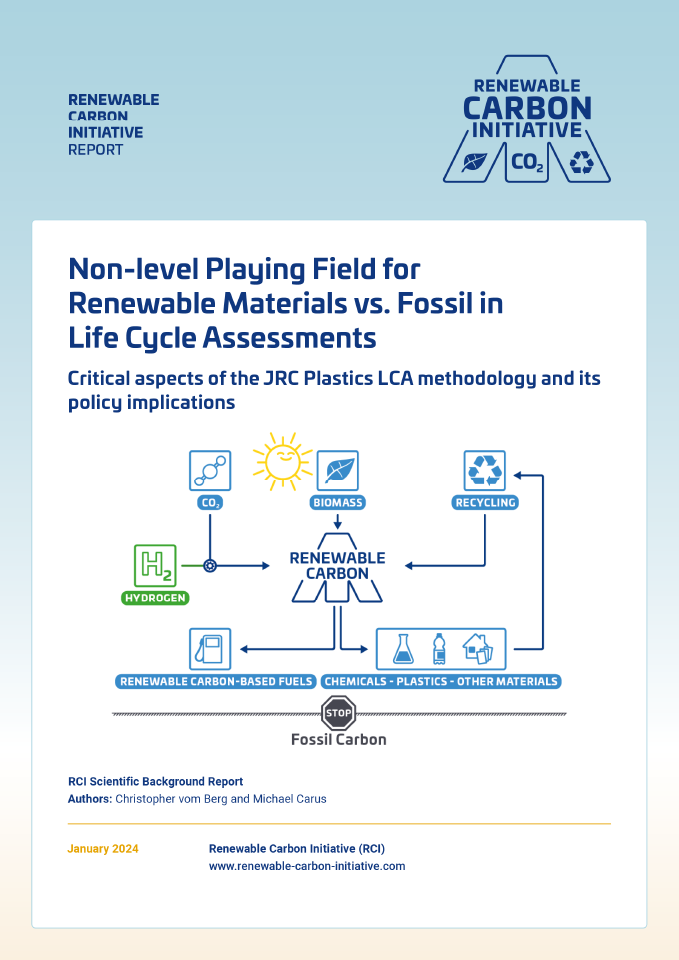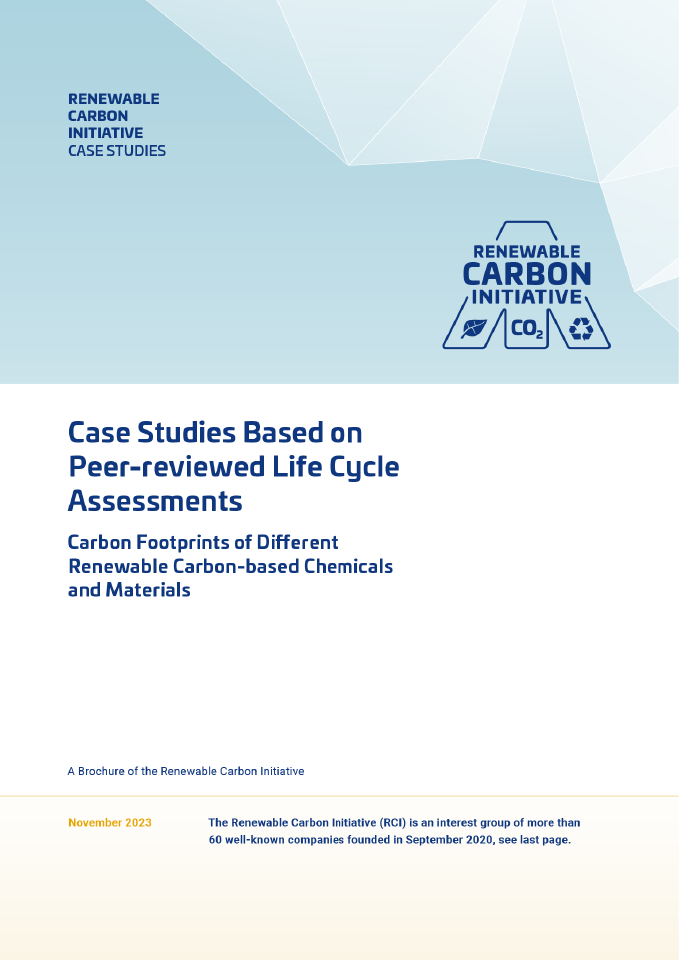RCI’s scientific background report: “Non-level playing field for renewable materials vs. fossil in Life Cycle Assessments – Critical aspects of the JRC Plastics LCA Methodology and its policy implications” (January 2024)
FREE
Critical aspects of the JRC Plastics LCA methodology and its policy implications
This RCI Scientific Background Report was mainly motivated by a study published by JRC in 2021 with the title: “LCA of alternative feedstocks for plastic products”, commonly referred to as the JRC Plastics LCA Method (Nessi et al. 2021).
Alternative feedstocks refer to the same three feedstocks that RCI defines as renewable carbon: biomass, CO2 utilisation and recycling. The study describes a methodology developed by the JRC to compare the environmental performance of alternative feedstocks with fossil-based plastic products. However, the methodology has also been subject to criticism from various stakeholders, mainly from the bio-based sector, eliciting responses from the JRC.
This RCI report is mainly aiming to provide additional context to highlight issues that might arise with implementation of the JRC Plastics LCA methodology, and dives deeper into five aspects:
- The fossil footprint is likely underestimated, not transparent and lacks regional differentiation
- Renewable feedstocks are more cirtically evaluated than fossil feedstocks
- Methodological inconsistency and different regulatory support between energy and material use of renewable feedstocks
- Biogenic/Atmospheric carbon uptake cannot be transparently visualised at factory in PEF / JRC Plastics LCA methodologies
- The methodology should acknowledge the wider interface of sustainability assessment, policy design and landscape
The report contains several recommendations to remedy the above-mentioned aspects.


